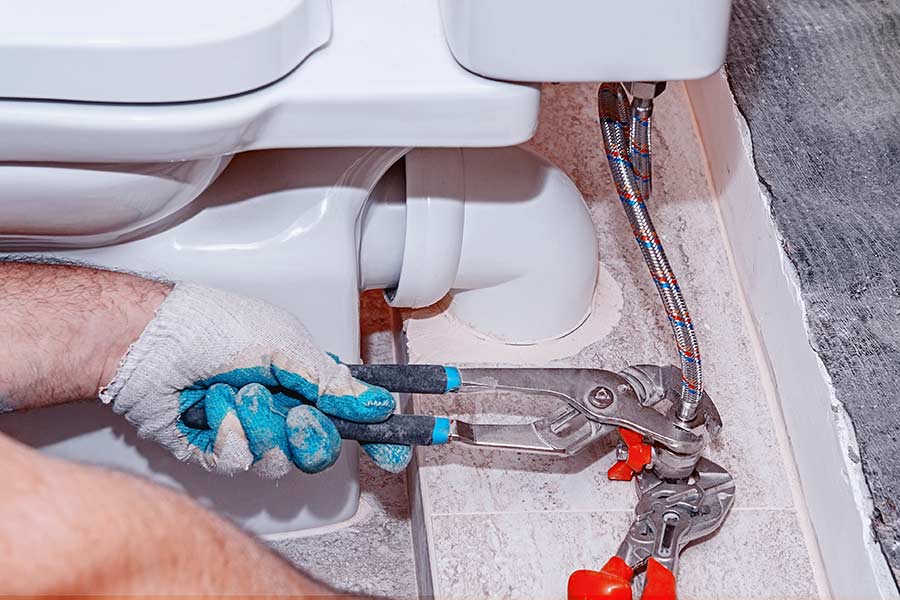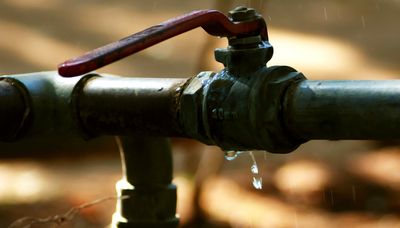The 5 Reiterative Water Leak Factors
The 5 Reiterative Water Leak Factors
Blog Article
We've encountered this great article involving How to Find and Prevent Water Leaks in Your Home down the page on the net and think it made good sense to talk about it with you in this article.

"Be careful of little costs. A small leak will sink a terrific ship." - Benjamin Franklin.
He couldn't have been more right due to the fact that water leakages in our houses lead to a waste of resources, raising our water costs. This rise might appear minimal at initially, it can lead to considerable expenditures that can damage your bank. Other than an increase in costs, water leaks additionally cause undesirable organic development, structural damages, and even electric risks.
If you have a water leakage isn't always easy due to being not able to see many of the pipework in your residence, figuring out. Nevertheless, If you have had a rise in your water costs lately, discovered water spots on ceilings and also wall surfaces, scented lousy odor, etc. You might wish to consider asking for plumbing services to get it looked into.
There are several sources of water leakages, and we have actually put together the usual factors below. Inspect to see if you have actually had related concerns in your house recently.
Damaged pipe joints
Pipe joints are the parts of our plumbing system where the pipes connect. It is important to keep in mind that also though pipelines are developed to withstand pressure and last for a while, they weren't developed to last forever; for that reason, they would deteriorate over time. A common sign of harmed pipe joints is excessive sound from faucets.
High water stress
You discovered your home water pressure is greater than common however after that, why should you care? It's out of your control.
It would be best if you cared because your ordinary water pressure should be 60 Psi (per square inch) as well as although your home's plumbing system is designed to hold up against 80 Psi. A rise in water pressure can place a strain on your house pipelines and also result in splits, or worse, burst pipelines. Obtain in touch with a specialist concerning controling it if you ever before see that your residence water pressure is greater than common.
Deterioration
As your pipework gets older, it gets weaker and much more susceptible to rust after the regular flow of water via them, which can gnaw at pipelines as well as trigger fractures. A visible sign of corrosion in your home plumbing system is discoloration and although this might be hard to discover because of many pipes hidden away. Once they are old to make sure a sound plumbing system, we advise doing a constant checkup every couple of years as well as change pipes
Clogged drains pipes
Food fragments, dust, and oil can trigger clogged drains pipes and block the passage of water in and out of your sink. If undealt with, raised stress within the seamless gutters can finish and also create an overflow up fracturing or breaking pipelines. To prevent blocked drains in your home, we advise you to stay clear of putting fragments away as well as routine cleansing of sinks.
Busted seals
An additional source of water leaks in residences is broken seals of residence appliances that make use of water, e.g., a dishwashing machine. When such devices are set up, seals are mounted around water adapters for easy passage of water via the machine. A damaged seal can create leak of water when in use.
With little or no knowledge of plumbing, comprehending your house's plumbing system adequate to fix a few of these concerns (without effect) can be an inconvenience. Contact plumbing professionals in Pittsburgh, Divine Superintendence, Rochester, and also environ today, as well as they'll make those problems go away.
He could not have actually been more ideal due to the fact that water leakages in our homes result in a waste of resources, enhancing our water expenses. If you have had a boost in your water expenses lately, discovered water stains on ceilings as well as walls, smelt lousy odor, and so on. A rise in water pressure can put a strain on your home pipelines and also lead to fractures, or worse, burst pipes. An additional cause of water leaks in homes is damaged seals of house appliances that use water, e.g., a dishwashing machine. When such home appliances are set up, seals are set up around water adapters for very easy passage of water through the maker.
5 TIPS IN DETECTING A WATER LEAK IN YOUR HOUSE
Water leaks can be hard to find in your home, yet they can be so common. We rely on water every day in our home, which is why a leak can cause big problems. By detecting them early, you can save money and further damage, getting the problem fixed as soon as possible. Here are 5 tips to help you detect a water leak in your home, so you can contact a plumber straight away and get the issue sorted.
Check your water meter
Many people underestimate the value of the water meter in their home. It can be one of the best ways to tell if you have a leak early on, so you can get on top of it before issues start arising. Start by turning off all the water in your home: taps, washing machine, dishwasher, etc. Now take a look at the meter – if it’s still changing with everything turned off, it’s likely you have a fast-flowing leak that you need to get on top of straight away. If nothing changes, then leave your meter for an hour or two and come back to it. Did it change in this time? It’s likely you have a slower leak, which isn’t as urgent but still handy to get fixed so it doesn’t become a bigger problem.
Keep an eye on your bill
Another good way to detect a leak in your home is by keeping an eye on your water bill. It helps if you have a past bill from the same period of time. You can compare like for like and determine whether your water usage has increased significantly. If it has, there may be a leak in your system that you haven’t picked up before. A professional plumber can check through all of your pipes and determine where it is coming from.
Look for damage
If you have a leak inside your home, you will notice damage over time. Take a look at your showers and bathtubs and note whether any of the tiles surrounding the area seem to be discoloured or damaged in any way. There may be water stains, mould or peeling material that has resulted from a build up of moisture over time. Make sure you take a look under sinks at the back of cupboards that don’t get accessed regularly. This is where damage can go unnoticed and build up over periods of time.

Hopefully you enjoyed reading our topic on How to Find and Prevent Water Leaks in Your Home. Thank you so much for taking the time piece of content. So long as you enjoyed our article kindly make sure you remember to share it. Thank you so much for taking the time to read it.
Call Report this page